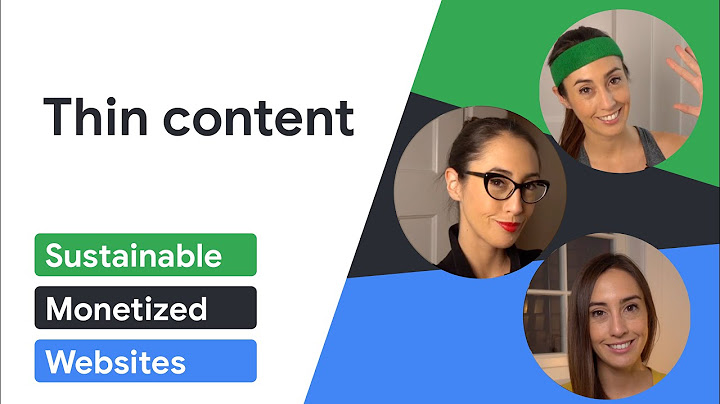What is Thin Content?

What is Thin Content?
What is Thin Content in SEO?
Thin content refers to web pages that lack substantial value for users. It typically consists of low-quality, poorly written, or duplicated content from other sources. Instead of focusing on providing valuable information to users, thin content may be designed solely to manipulate search engine rankings or generate website traffic.
According to Google’s Webmaster Guidelines, webmasters should refrain from creating pages that contain little or no original content1. Search engines may penalize websites that have a significant number of thin or low-quality pages, resulting in lower search rankings and decreased organic traffic.
It’s essential to prioritize quality and value when creating web content, ensuring that it meets the needs and interests of your target audience. By producing informative, unique, and engaging content, you can enhance your website’s credibility, attract organic traffic, and improve your search engine rankings.
Examples of thin content include:
- Doorway pages: These are created with the sole purpose of ranking for specific keywords or phrases. However, they lack value beyond the initial landing page, and users are often redirected elsewhere.
- Low-quality automatically generated content: This content is usually created by software instead of human authors. It provides little to no value to users and often contains errors or inaccuracies.
- Scraped content: This type of content is copied or republished from other sources without adding any additional information or context. This can lead to duplicate content issues and provide little value to users.
- Thin affiliate pages: These pages serve only to promote affiliate products or services with little or no useful information or resources to users.
Here’s how to avoid thin content issues:
- Doorway pages
- Automatically generated low-quality content
- Scraped content
- Thin affiliate pages
Let’s explore each example in detail:
Doorway pages
Doorway pages are web pages created with the intention of ranking for specific keywords or phrases. However, they lack substantial value beyond the initial landing page. Their primary purpose is to redirect users to other pages or websites. Doorway pages often offer little to no valuable content or information to users.
Automatically generated low-quality content
Automatically generated content refers to web pages that are created by software or algorithms rather than by human authors. This content is typically of low quality and lacks the depth and value that comes from human input. It may contain errors, inconsistencies, or irrelevant information. Automatically generated content often fails to provide meaningful insights or address the needs of users.
Scraped content
Scraped content refers to web pages that have been copied or republished from other sources without adding any substantial value or unique insights. These pages lack originality and fail to provide users with additional context, analysis, or perspective. Search engines often penalize websites that publish scraped content due to its lack of uniqueness and usefulness to users.
Thin affiliate pages
Thin affiliate pages are web pages created solely to promote affiliate products or services. These pages tend to prioritize the promotion and monetization of affiliate links over providing valuable information or resources to users. Thin affiliate pages often have little content beyond brief product descriptions and affiliate links, offering limited value to users.
It’s essential to avoid creating thin content and instead focus on producing high-quality, relevant, and valuable content that serves the needs of your target audience. By providing quality content, you can enhance your website’s credibility, improve search engine rankings, and engage users effectively.
It’s important to create high-quality content that provides value and engages users, rather than focusing on manipulating search engine rankings or generating traffic through thin content. Search engines favor informative, relevant, and original content that satisfies the needs of users. By prioritizing quality over quantity, you can improve your website’s search engine rankings and attract organic traffic.



1 Comment
This article had me laughing and learning! For additional insights, check out: EXPLORE NOW. Any thoughts?